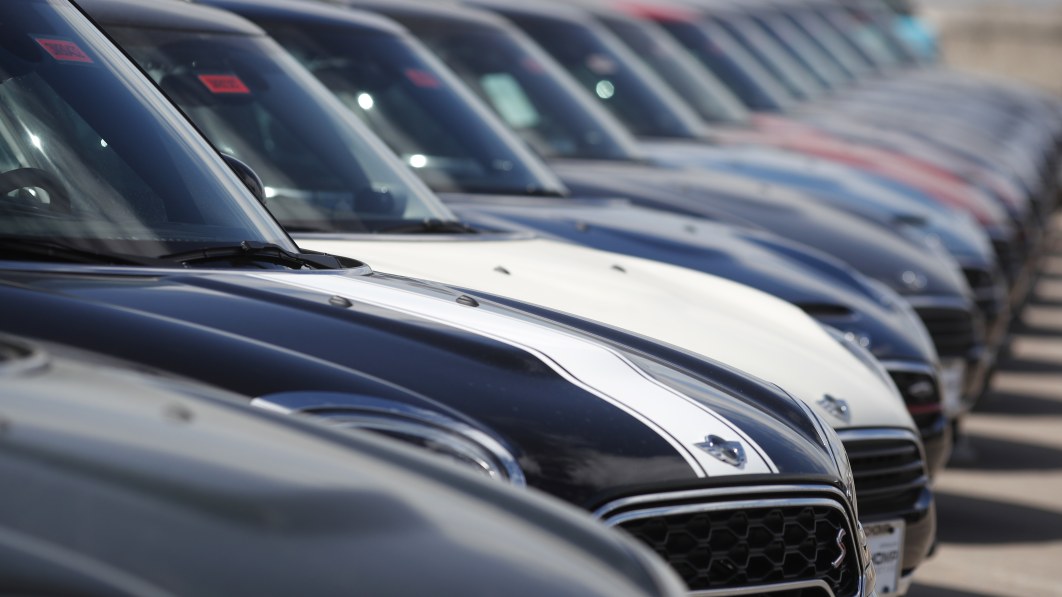
Consumer Reports spent a year on an investigative report into auto loans. The magazine's findings aren't exactly surprising to any car enthusiast — a frightening number of people are overcharged for car loans. But while we enthusiasts know this in our hearts, CR has the juicy, juicy data to back it up.
CR gathered its information on almost 858,000 loans from 17 lenders, as well as borrower data including credit scores, income and employment status. These were obtained from mandatory filings submitted to the the U.S. Securities and Exchange Commission in 2019 and 2020 detailing asset-backed securities, which are car loans bundled into an asset investors can buy into. Obviously there are more than 858,000 outstanding car loans in the country, but CR could only look at the loans that required public disclosure.
To put the sample size in context, an Experian report from February of 2021 put total U.S. auto loan debt at $1.37 trillion and the average auto loan balance at $19,865. Multiplying CR's 858,000 borrowers by $20,000 gives us $17.1 billion — about 1.2% of the total outstanding debt. On top of the raw data, CR said it examined "thousands of pages of regulatory filings, court records, trade publications, industry reports, financial records, public documents obtained through the Freedom of Information Act, and [interviewed] more than 90 federal and state regulators, advocacy organizations, consumers, lawyers, legal experts, academics, and industry groups."
Along with longer loans being the norm, CR said the average monthly payment is nearly $600, when 10 years ago it was about $450. Around 8 million Americans are more than 90 days late on those payments. And a regrettable number of loans start off badly, with CR saying 46% of the loans in the data it reviewed were underwater from the get-go, to the tune of $4,000 on average.
Buyers with the same credit scores would get charged wildly different interest rates, with "dealers and lenders setting interest rates based on what they think they can get away with." This was true even for people with prime and super-prime credit scores, the latter starting at 720 and above. It was also regardless of buyer race and ethnicity since that information isn't included in the SEC filings.
CR said around 21,000 borrowers in its data set with credit scores higher than 720 were paying off loans with APRs of 10% or more. Two California buyers, each with a prime credit score and each trying to buy a 2017 Chevrolet Trax, financed through GM Financial. One buyer got a loan with a 4.9% APR, the other a loan with a 14.1% APR.
A 2018 Toyota Camry buyer in Maryland, whose "sterling credit" would normally merit a 4.5% APR, instead accepted a six-year loan at 19%. If the buyer had paid off the loan, they would have spent $59,000 on the Camry by the end of 2025. Instead, the car was repossessed.
The issue has occasionally put dealers and lenders at odds with one another. For buyers in the data set, lenders verified income just 4% of the time, which was more often than they verified employment. When the banks don't do their diligence about a buyer's loan worthiness, such as verifying income or employment, the dealer can end up with skyrocketing repossessions. In one case in South Carolina, the lending bank even went after the dealership for the bad loans; the dealer then in turn sued the bank.
One of the crucial takeaways here is the glaring need for consumer education. While the lenders that would go on record told CR buyers have options when it comes to financing, which is incontestably true, a large number of buyers are not aware of (and thus have not been informed about) their options or simply don't have the time or resources to properly research them. Car buyers are irrationally focused on the car's purchase price or the monthly payment, not how much they'll pay through the life of the loan. For some reason, many in the data set expect the dealer to do the best for the buyer.
How often do you suppose that actually happened?
Look no further than the fact that, per CR, at least 80% of car financing is arranged through dealers, who are legally allowed to mark up a lender's APR by 1%-2%. Paul Metrey, an SVP at the National Automobile Dealers Association, told CR "there is no financial incentive for dealers to present longer-term or more expensive credit options to consumers." But it seems absurd to us to think that GM Financial wouldn't find a way to reward a GM dealer who goosed a loan for an extra 2%. It's hard to turn down free money.
Head over CR to check out the entire story. It's long, but it should be required reading for everyone getting a loan from any lender to buy any kind of vehicle.
Warhol said, "Art is what you can get away with." So is auto financing.
"auto" - Google News
October 31, 2021 at 08:00PM
https://ift.tt/3nEkOho
'Consumer Reports' investigates auto loans, finds bad news everywhere - Autoblog
"auto" - Google News
https://ift.tt/2Xb9Q5a
Shoes Man Tutorial
Pos News Update
Meme Update
Korean Entertainment News
Japan News Update
No comments:
Post a Comment